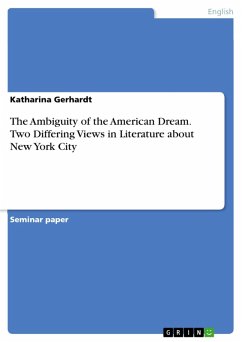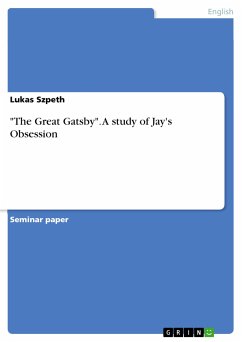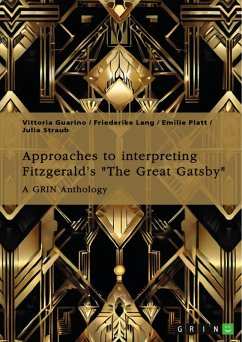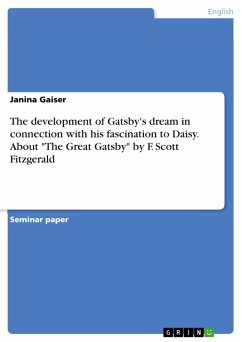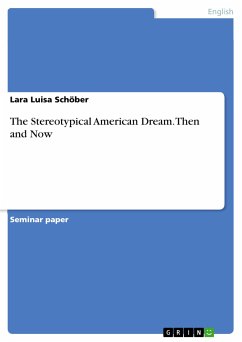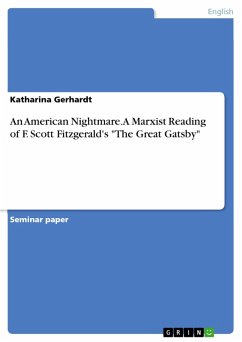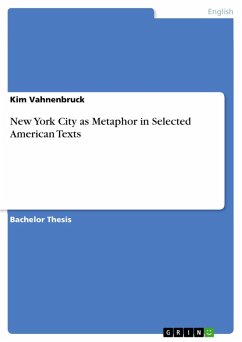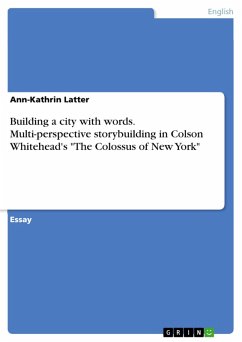Seminar paper from the year 2016 in the subject American Studies - Literature, grade: 2,3, Johannes Gutenberg University Mainz, language: English, abstract: The American Dream is one of the most essential myths in American history. To this day its meaning and value are a vital part of American culture, but since it is such a powerful and influential concept, it is also the object of manifold interpretations, which at times turn out to be opposing. In my paper, I will compare the different ideas on the American Dream in F. Scott Fitzgerald's The Great Gatsby and Emma Lazarus's poem "The New Colossus". While Fitzgerald presents a rather negative view of the American Dream, leaving us with the notion that although we know that we must eventually fail in trying to achieve our goals, we still keep on trying. Lazarus on the other hand presents the reader with the positive side of the American Dream and New York when she says that everyone is welcome, no matter what their background is, everyone has a chance to achieve a better life in the city. This shows that in a way New York was a symbol for the American Dream, because for many the city stood for a better life and the possibility to achieve your dreams during the time when these two works were written. Lazarus includes everyone in her poem, whereas Fitzgerald leaves out real success stories and different races are portrayed negatively. Therefore, it can be said that although both might present parts of the 'reality' of the American Dream and its impact on society, they still offer very narrow and incomplete images of it, since both of them stay focused on specific (also subjective) views of this myth and the city of New York. In order to show this, I will first analyze The Great Gatsby and the idea of the American Dream Fitzgerald presents in it. Then I will describe Emma Lazarus's role in the shaping of the American Dream and how her words also partially oppose reality. I will then continue to analyze the ambiguity of the American Dream and New York as a city of dreams, fascination and new beginnings, but also of failure and lost hopes as it is presented in The Great Gatsby and in Lazarus's poem.
Dieser Download kann aus rechtlichen Gründen nur mit Rechnungsadresse in A, B, BG, CY, CZ, D, DK, EW, E, FIN, F, GR, HR, H, IRL, I, LT, L, LR, M, NL, PL, P, R, S, SLO, SK ausgeliefert werden.

